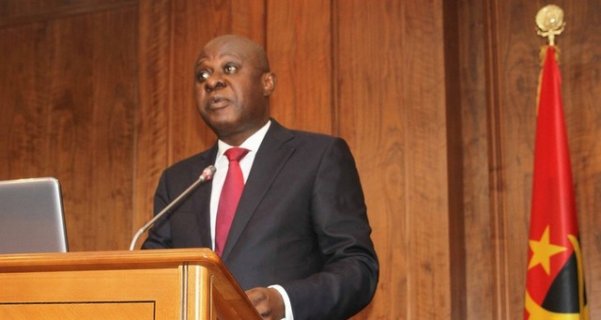Manuel Nunes Júnior was speaking this Tuesday at the opening of the first edition of the Angola Economic Outlook - AEO 2023, with the motto "From Economic Recovery to Sustainable Development", an economic observation platform to allow investors and other economic operators to anticipate their decisions depending on the projected scenarios.
The official stressed that the executive foresees growth of 3.3 percent for the current year, with the oil sector growing 3.3 percent and the non-oil sector 3.42 percent.
"We have to continue on this path of economic growth so that our country's major social problems are resolved, with special emphasis on the high unemployment rates that our country still has", said Manuel Nunes Júnior.
The Minister of State for Economic Coordination stressed that "when agents do not trust the market there is no investment, especially in the sphere of production of goods and without investment there is no economic growth and without economic growth there is no prosperity".
According to Manuel Nunes Júnior, in order to restore confidence in the market by economic agents and restore the balance of internal and external accounts, in 2018 the Angolan government initiated a broad program of economic and financial reforms, which allowed the country to leave a framework of systematic budget deficits from their fiscal accounts to 'surpluses'.
"At the end of 2017, the imbalances in our country's internal and external accounts were very deep", said Manuel Nunes Júnior, stressing that "the systematic deficits resulted in an increase in the country's debt levels".
According to the Minister of State for Economic Coordination, since 2018 to date the country has presented budget 'surpluses', with the exception of 2020, due to the effects of the covid-19 pandemic.
"Last year, Angola had a 'surplus' of 2.7 percent of GDP in budgetary terms. This great effort that the executive is making to move from deficit budget balances to surplus balances is essential to reverse the debt trend of the country and increase confidence in the Angolan market", he stressed.
Manuel Nunes Júnior said that the effects of the downward trend in public debt "are already verifiable in the fact that the 'stock' ratio of public debt to GDP rose from 134 percent in 2020 to 65 percent in 2022 , very close to the level of 60 percent" which is the goal that the Government intends to reach, he stressed.
"Inflation rates have also known a clearly downward path, after having peaked at around 42 percent in 2016, it was reduced to 13.8 percent in 2022. In February 2023, the inflation rate inflation stood at 11.54 percent, the lowest since 2015," he said.
With regard to the foreign exchange market, the Angolan official said that "it is working normally" and that the value of the national currency was adjusted to market conditions, that is, the demand and supply of foreign currency.
"The country's foreign exchange transactions have become safer and more predictable and those who invest in Angola have been able to expatriate their dividends freely and in a timely manner", said the Minister of State, also recalling that the current account of the balance of payments, which was in deficit until 2017, it started to have positive balances between 2018 and 2022.
After reporting "the efforts that have been made to ensure the country's macroeconomic stability", Manuel Nunes Júnior highlighted the importance of the flow of production of goods and services, "the basis of any economy".
In this domain, the official highlighted the fundamental role of the private sector in the process of economic growth and diversification of the economy, with the State having the duty "to play the role of regulator and coordinator of development".
"As we have said on several occasions, increasing national production is a national imperative, so that we can have a stronger economy and less vulnerable to external shocks, especially shocks linked to the high volatility of oil prices on the international market", he stressed.
In 2022, highlighted Manuel Nunes Júnior, the recovery trend of the economy was consolidated, preliminary estimates indicate that the Gross Domestic Product (GDP) will have grown by around 3.05 percent last year, with the oil and gas sector growing 0.5 percent and the non-oil sector growing 3.9 percent.







